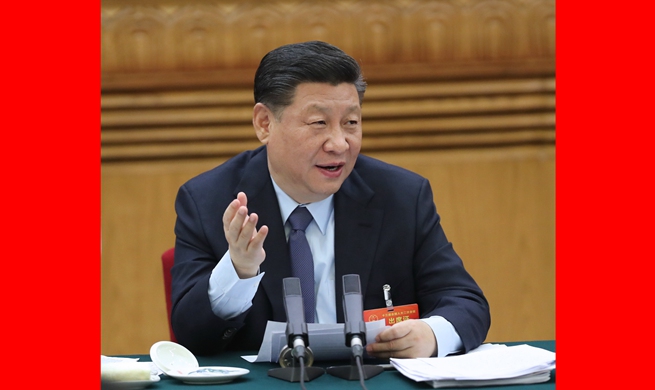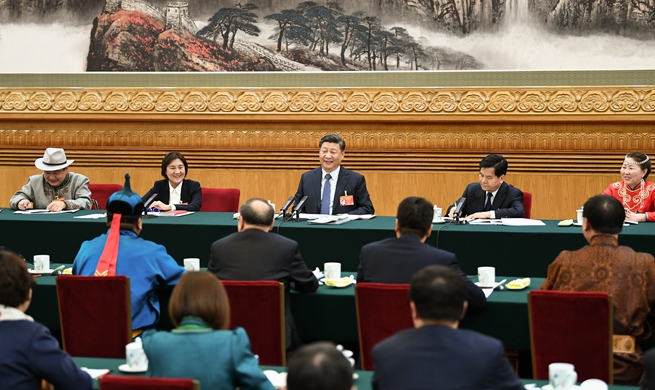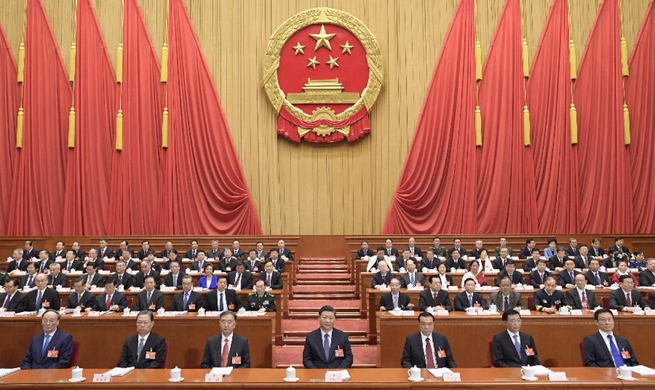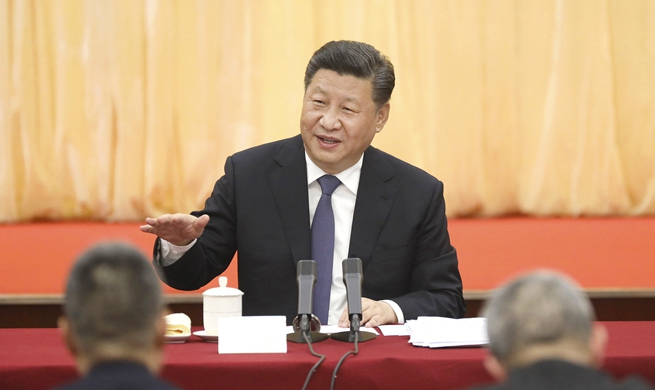BERLIN, March 7 (Xinhua) -- The German government should accelerate the expansion of renewable energy in Germany and phase out coal by 2030 to meet its targets against climate change, according to a study released by the German Institute for Economic Research (DIW) on Thursday.
The study, conducted on behalf of the Green parliamentary faction in the German parliament, examined the effects of a greater expansion of renewable energy in Germany's electricity sector in combination with a coal phase-out by 2030.
According to the DIW study, unless the German government altered its current policy framework, renewables would only supply 55 percent of Germany's electricity in 2030. The current coalition agreement between Germany's governing parties commits to raising the renewables target for 2030 to 65 percent.
Under current climate protection measures, the German federal environment ministry (BMU) estimated that Germany's greenhouse gas emissions next year would be around 32 percent less than in 1990, missing Germany's 2020 climate target of 40 percent.
"We need a paradigm shift: more and not less green electricity. Because wind and sun are now the guarantors not only for climate protection, but also for security of supply and affordable electricity prices", deputy chair of the Green parliamentary faction Oliver Krischer told Xinhua on Thursday.
The German coal commission, appointed by the German government, recently proposed a coal phase-out between 2035 and 2038. The study by DIW showed that rapidly boosting renewable energy could bring the phase-out date forward to 2030.
Fueling the German electricity sector entirely with renewables would be a possibility with the "right policies", according to the DIW study. Faster expansion rates and more offshore wind could increase Germany's share of renewables to 85 or even 100 percent by 2030.
Green parliamentary faction leader Oliver Krischer said that "a significant increase in the amount of wind and solar power put out to tender and better planning procedures" would be important first steps towards "boosting the expansion of green electricity and keeping tens of thousands of jobs in Germany".
Krischer also called for the abolition of the so-called "sun tax" that hinders the personal use of solar power. An updated European renewable energy directive, which has not been implemented in Germany yet, will allow individuals to generate electricity from renewable sources for their own consumption, to store surplus energy as well as to sell it.
Germany has already installed over 46 gigawatts (GW) of solar capacity and 56 GW of wind to date, which accounted for around 40 percent of Germany's energy mix last year, recent figures from the Fraunhofer Institute for Solar Energy Systems (ISE) showed.












